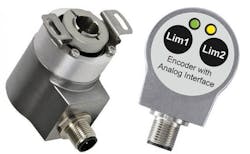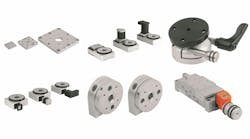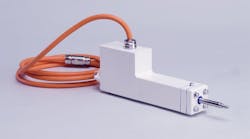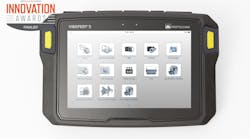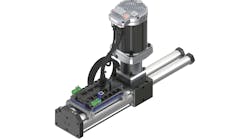Encoder specialist POSITAL has announced a new generation of analog rotary encoders for position control. Compared to the company’s earlier analog encoders, these new models feature improved accuracy, faster dynamic response and new programming options. They also accept a wider range of supply voltages, an advantage for mobile machinery applications.
POSITAL’s analog encoders are designed for positioning tasks that use analog control systems. Outputs are either voltage (0-5V, 0.5-4.5V, 0-10V or 0.5-9.5V) or current (0-20 mA or 4-20 mA). The magnetic measurement mechanism is wear-free and extremely durable so that these devices offer much better accuracy, reliability and service life than conventional potentiometers.
An important feature of the POSITAL analog encoders is that they are programmable with measurement characteristics that can be customized to meet specific application requirements, (This feature is also available with POSITAL’s digital encoders with SSI and incremental interfaces.) Programming can be carried out at the factory, in a distributor’s warehouse or at the customer’s job site, thanks to POSITAL’s easy-to-use UBIFAST programming tool.
Programmable characteristics include direction of rotation (CW or CCW), zero set and the encoder output range. Measurement range programming allows the full range of electrical outputs (voltage or current) to be set to match a user-defined range of mechanical motion, resulting in significant improvements to control system accuracy. For single-turn models, the measurement range can be set to 90°, 180°, 270° or 360°. For multi-turn models, the range can be set anywhere between 1 and 65,536 complete rotations. Analog encoders are available with push-buttons on the housing that enable the user to easily specify the upper and lower limits of the mechanical motion, with the electrical output fully spanning this range.
